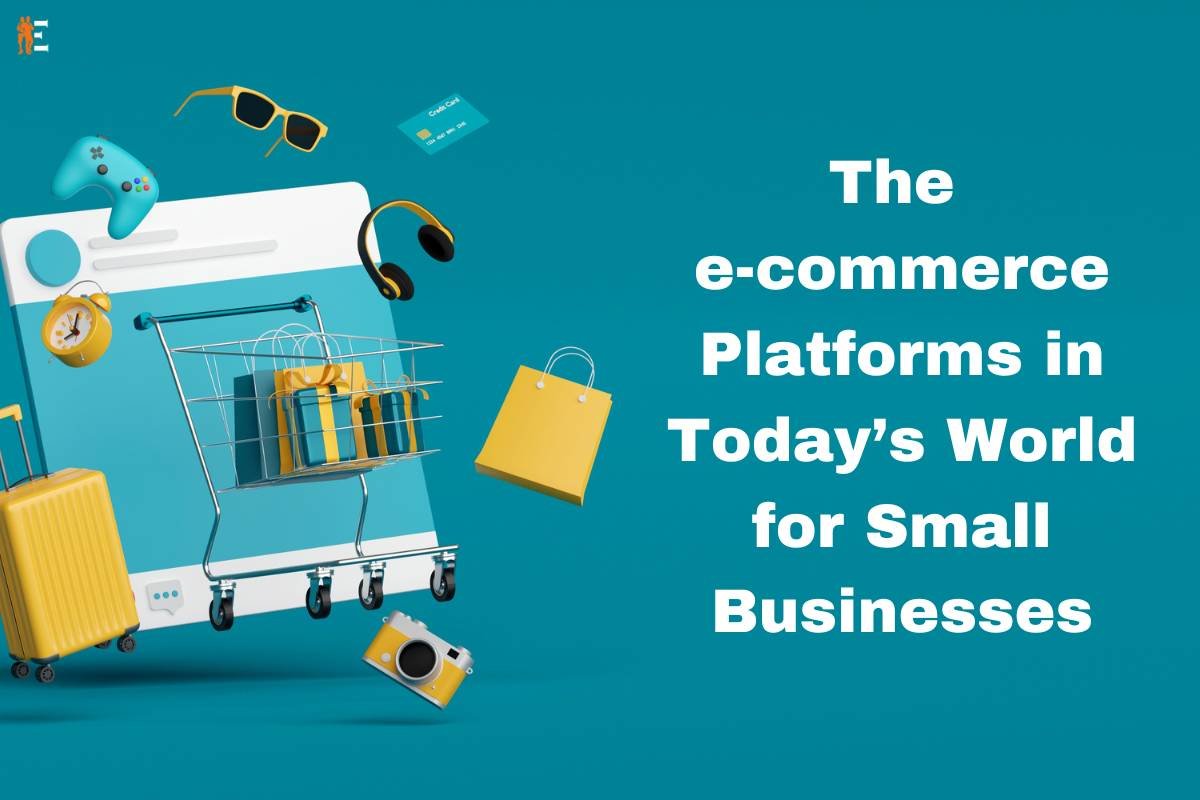Online marketplaces are a thing these days. A lot of people have incurred handsome amounts by listing their products/services for sale on e-commerce platforms. They are easy to upload or list the products, take online orders, and sell them too, all these processes are easy. These platforms make it easy and affordable for the sellers to make an income out of it. Since the digital era has taken control, a physical store is a lot less needed. This indicates that starting a small shop needs a dedicated space and a huge investment to start with. The initial investment was the issue most of the time.
E-commerce platforms are now the new go-to platforms. Online selling is very cost-effective, popular, efficient and feasible.
Here are some e-commerce platforms in Today’s World for Small Businesses:
1. The Diversity of E-commerce Platforms
E-commerce platforms come in various forms, each tailored to meet specific business needs. Small businesses can choose from a plethora of options, including:
Renowned for its user-friendly interface, Shopify is an excellent choice for small businesses. It offers a range of customizable templates, seamless integration with third-party apps, and secure payment processing.
Designed for WordPress users, WooCommerce is a versatile e-commerce plugin. It enables businesses to transform their existing websites into fully functional online stores with ease.

BigCommerce is a robust e-commerce platform known for its scalability. It suits small businesses planning substantial growth, offering features like multi-channel selling and abandoned cart recovery.
- Magento:
While Magento may be more complex to set up, it provides unparalleled customization options and is ideal for businesses with unique requirements.
- Wix:
Wix offers an all-in-one solution, combining website building and e-commerce capabilities. It’s user-friendly and suitable for businesses that want to get online quickly.
Squarespace is known for its elegant and aesthetically pleasing templates. It caters to businesses that prioritize design and visual appeal.
OpenCart is a free and open-source e-commerce platform that is highly customizable and suitable for businesses with technical expertise.
Also Read: 5 Best E-Commerce Platforms in 2023
2. The Transformation of Traditional Businesses
The rise of e-commerce platforms has significantly altered the landscape for traditional brick-and-mortar businesses. Here are some of the notable changes:
- Global Reach:
E-commerce platforms enable small businesses to reach a global audience, breaking down geographical barriers and expanding their market reach.
- 24/7 Accessibility:
Unlike physical stores with limited operating hours, online stores are accessible round the clock, accommodating the diverse schedules of modern consumers.
- Reduced Overhead:
Operating an online store often incurs fewer costs compared to maintaining a physical storefront. This cost reduction can be a game-changer for small businesses.
- Inventory Management:
These platforms offer advanced inventory management tools, allowing businesses to streamline operations and avoid overstock or stockouts.
- Customer Insights:
Data analytics and customer tracking on e-commerce platforms provide invaluable insights into consumer behavior, helping businesses tailor their offerings.
- Competitive Edge:
Small businesses can compete with larger corporations by leveraging digital marketing, effective SEO strategies, and targeted advertising.
3. The Vital Role of E-commerce Platforms for Small Businesses

E-commerce platforms play a crucial role in the success of small businesses in today’s world. Here’s how:
- Accessibility:
E-commerce platforms make it accessible for small businesses to establish an online presence and start selling products or services, leveling the playing field with larger competitors.
- Scalability:
Many of these platforms are scalable, allowing businesses to grow and expand their offerings as they become more established.
- User-Friendly:
These platforms often come with intuitive interfaces that don’t require extensive technical knowledge, making it easier for small business owners to manage their online stores.
- Cost-Efficiency:
E-commerce platforms can be more cost-efficient than setting up and maintaining physical stores, helping small businesses allocate their budgets more effectively.
- Marketing Tools:
They offer built-in marketing tools and integrations, enabling small businesses to create effective marketing campaigns and reach a wider audience.
- Payment Processing:
E-commerce platforms typically provide secure and efficient payment processing, ensuring smooth transactions for customers.
4. The Future of E-commerce for Small Businesses
The future of e-commerce platforms for small businesses is brimming with potential. Here are some key trends to watch:
- Mobile Commerce:
With the increasing use of smartphones, mobile commerce is set to dominate. These platforms will need to prioritize mobile responsiveness and user experience.
- AI and Chatbots:
AI-driven chatbots will become more prevalent, enhancing customer service and personalization.
- Sustainability:
Consumers are becoming more conscious of environmental impact. E-commerce platforms that emphasize sustainability will gain a competitive edge.
- Augmented Reality (AR) and Virtual Reality (VR):

AR and VR technologies will enable customers to experience products virtually before making a purchase.
- Voice Commerce:
As voice assistants become more integrated into our lives, voice-activated shopping is expected to grow, requiring e-commerce platforms to adapt.
- Blockchain for Security:
Blockchain technology will play a significant role in enhancing the security and transparency of online transactions.
Conclusion:
E-commerce platforms have reshaped the landscape of business in today’s world, offering small businesses a multitude of options to establish and grow their online presence. These platforms have transformed traditional business models, enabling small enterprises to compete on a global scale, reduce overhead costs, and access invaluable customer data.
The vital role of such platforms in the success of small businesses cannot be overstated. They provide accessibility, scalability, user-friendliness, cost-efficiency, and essential marketing tools. As we look to the future, trends like mobile commerce, AI-driven chatbots, sustainability, AR and VR, voice commerce, and blockchain technology will continue to shape the e-commerce landscape. For small businesses, the message is clear: Embrace e-commerce platforms, adapt to emerging trends, and seize the incredible opportunities they offer. In the digital age, the world of commerce is at your fingertips, and with the right e-commerce platform, your small business can thrive and flourish in today’s ever-evolving market.











